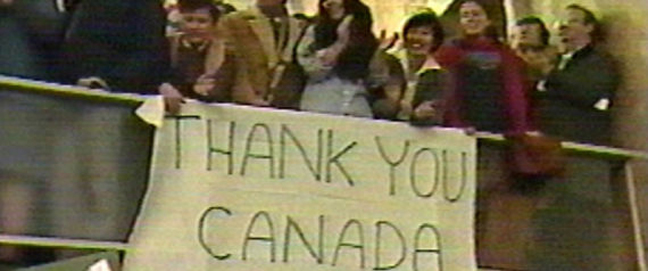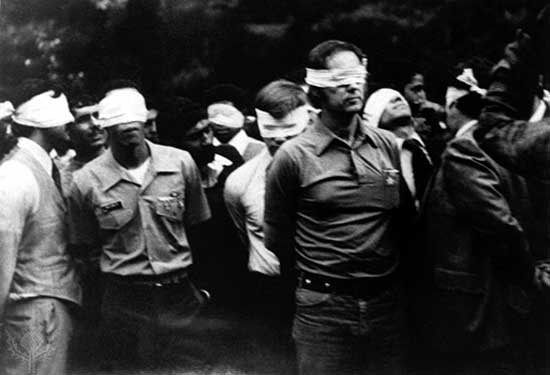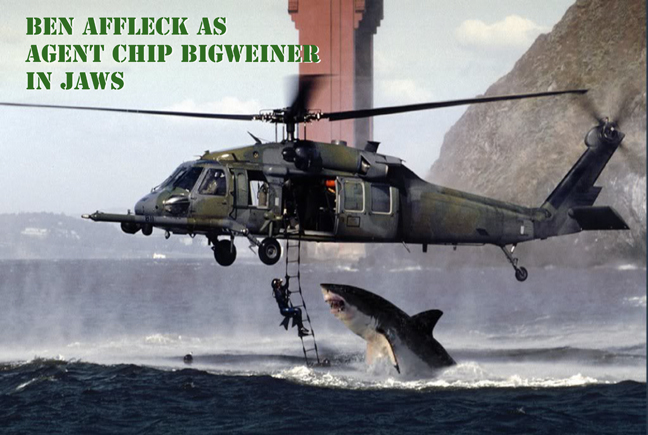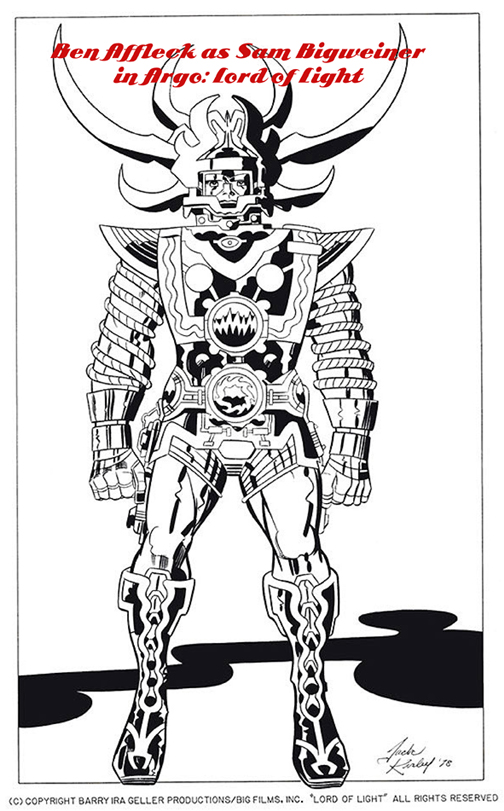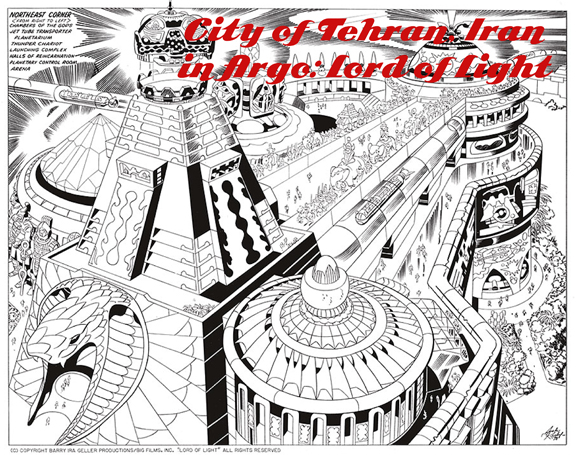Argo and the Canadian Caper
Some History
The Iran Hostage Crisis began on November 4, 1979 (known in Iran as the Conquest of the American Spy Den). It was the result of a breakdown in diplomatic relations between Iran and the United States when a group of Islamic students and militants stormed the American embassy in Tehran and held 52 Americans hostage for 444 days. Described as an entanglement of “Vengeance and mutual incomprehension”, Iran saw the action as an acceptable response to the undermining influence the United States had been having on the Iranian Revolution. This American support of the recently overthrown Shah of Iran, Mohammad Reza Pahlavi drew much ire from the revolutionaries. The Shah had been restored to power in a 1953 coup d’état organized by the C.I.A. at the American Embassy against a democratically elected nationalist Iranian government, led by the anti-Soviet and anti-British Prime Minister Mohammad Mosaddegh. While the even most likely kept President Jimmy Carter from a second term, In Iran, the crisis strengthened the prestige of the Ayatollah Khomeini and the political power of those who supported theocracy. The U.S. Iran relationship would never recover.
The Muslim Student Followers of the Imam’s Line, the group responsible for the occupation of the embassy, had never intended to remain in the embassy for “more than a few hours” in order to announce their objections, and “to detain the diplomats for a few days, maybe a week, but no more” but with the growing support of hundreds of protestors outside the embassy showing their support for student’s occupation which made it impossible end their campaign.
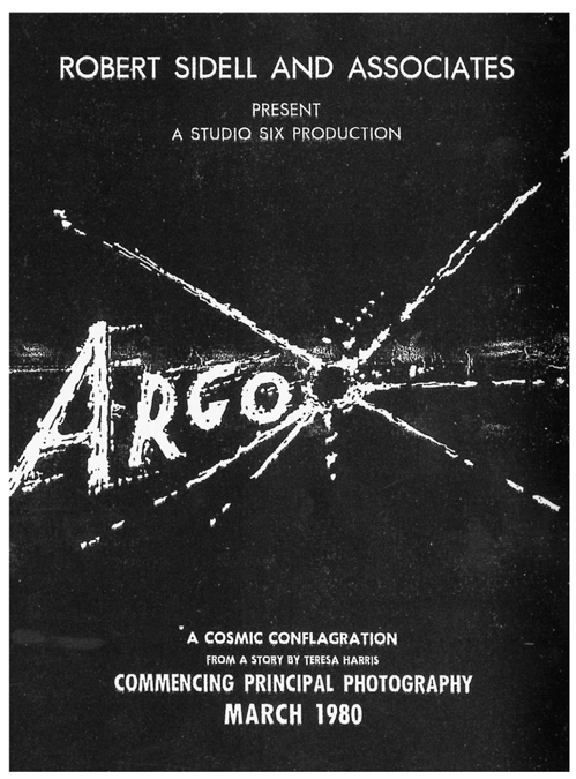
While this primetime drama was unfolding (this is the Canadian Culture Thing, not the American or Iranian Culture Things) six American diplomats had evaded capture and escaped to the British embassy and then to the Canadian. From there they were hidden at the home of Canadian diplomat (and hero) John Sheardown under the protection of Canadian ambassador (and hero) Ken Taylor.
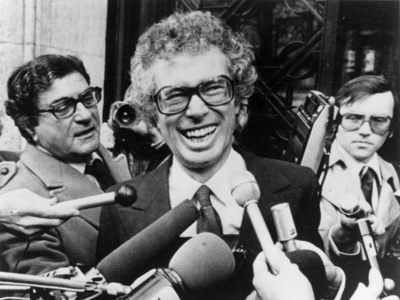
Knowing that the Iranians could be closing in on them at any time, Ken Taylor began organizing and implementing a plan to repatriate the six Americans. In late 1979, the Canadian Government secretly issued an Order of Council allowing the government to issue Canadian passports to selected American citizens so they could escape Iran. Under the veil of a Canadian crew shooting a science-fiction film called “Argo”, Canadian diplomats managed to get two CIA agents, Tony Mendez an agent known only as “Julio”, and six American diplomats on board a Swissair flight to Zurich, Switzerland. The January 28, 1980 escape of Robert Anders, Cora Amburn-Lijek, Mark Lijek, Joseph Stafford, Kathleen Stafford and Lee Schatz from Tehran, Iran became known as the Canadian Caper.
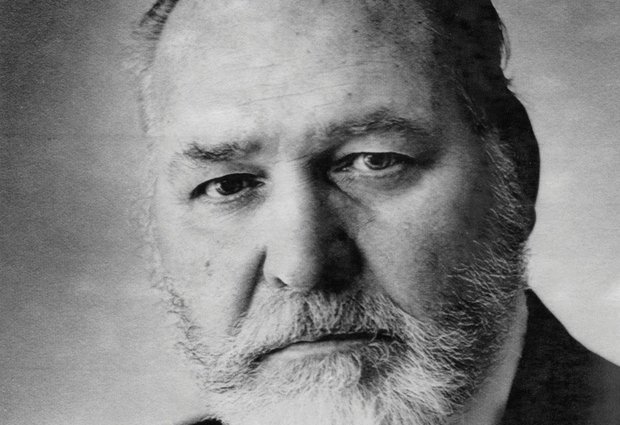
After several embarrassing failed U.S attempts to use force against Iran, the former Shah, a lynchpin in this event died. Immediately following the Shah’s death, Iraq invaded Iran and the pressure became too much and Iran began negotiations with the United States. After 444 days in captivity, the hostages were finally released into U.S. custody on January 20, 1981, a day after the signing of the formal release accord. This took place minutes after Jimmy Carter’s replacement: actor, politician, soldier, cowboy Ronald (Star Wars 1983 – not what you younger kids are thinking) Reagan was sworn into office. Referred to as “completely insane” by Prime-minister Pierre Trudeau, the people of Iran didn’t know how fortunate they were to have ended this international error-in-judgment when they did. Who can know what might have happened if the hostage release hadn’t been made and Bonzo’s Bedmate (1951) had a launch-key. Phew.
The account of the Americans absconding from Iran appeared as a Canadian-American co-production made-for-television movie cryptically called Escape from Iran: the Canadian Caper in 1981. But it wasn’t until master-thespian star of Daredevil and Gigli and now director/unhistorian Benjamin Geza Affleck decided to “make a movie” about the escape. Ben “Goebbels” Affleck believed that American audiences wouldn’t sit through a film where Canadians led and American followed. Instead of making Saving Private Ryan 2, this time it’s even less historical, he decided to mold history into a convenient bit of action-drama called Argo.
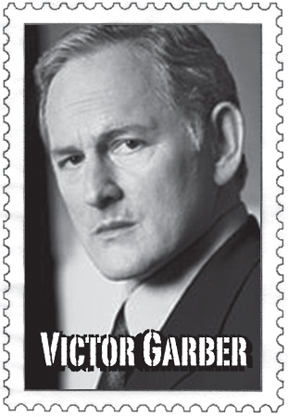
Argo is the fictional account of a team of American super-spies that save six hostages (and possibly the world) from the clutches of Iranian militants in Tehran. Directed by American actor (and side-show contortionist) Ben Affleck, Argo takes it’s viewers on a rollercoaster ride of excitement and intrigue while his Canadian viewers feel disappointment and anger as it boasts a make-believe tale of American ingenuity and heroism. When asked why he threw caution (and reality) into the wind, Affleck explained, “Canadians should rightly take pride in what they did for the six houseguests, the diplomats were heroic. That’s indisputable. But that part of the story had already been told. When you’re a filmmaker making a film based on a historical event, it’s your job to find a new way into a story.” Mr Affleck went on to say that “There would be a very compelling film that is primarily about the heroism of ambassador Taylor before Tony Mendez even hears about the crisis — and, in fact, that film already exists (1981’s ‘Escape From Iran: The Canadian Caper’ — starring Gordon Pinsent), we weren’t interested in remaking that film.”
The following is an excerpt from David Haglund’s Slate article on the inaccuracies of Argo:
Canada’s Involvement
The most disputed aspect of the movie’s version of events has to do with Canada’s role in the escape. 30 years ago, Canada received complete credit for the rescue, because the U.S. was worried about possible repercussions if CIA involvement was publicized. (They may also have wanted to maintain the plausibility of a similar ruse in future.) Argo corrects that version of events—or, rather, overcorrects it, downplaying the actual extent of Canadian involvement, which was considerable. The Americans were housed by two Canadians: the Ambassador Ken Taylor, and a Canadian embassy employee, John Sheardown. (In the film, all of them stay with Taylor; Sheardown does not appear at all.) It was Taylor who cabled Washington to begin the escape plan in earnest, and once the plan was decided on, Canadians “scouted the airport, sent people in and out of Iran to establish random patterns and get copies of entry and exit visas, bought three sets of airline tickets,” and “even coached the six in sounding Canadian.”
Almost none of that appears in Argo. Taylor himself has a major part, and is presented as a sympathetic and brave man who took great personal risks to save the Americans. But his actual role was even larger. He was “spying for the U.S. throughout the hostage crisis, at the request of Jimmy Carter.” After some friends who attended the Argo premiere in Toronto described it to Taylor, he expressed concern “that we’re portrayed as innkeepers who are waiting to be saved by the CIA,” which is a pretty fair description of what the film depicts. Affleck made a small change in response to this criticism: A postscript that contrasted Taylor’s 112 citations with the absence of credit given the CIA was rewritten to praise the Argo mission as a model of international cooperation.
Regarding the Escape
It’s not Canada’s involvement that has gotten the goat of some critics, though—it’s the pulse-pounding trip to the airport that serves as the movie’s climax. Affleck’s version involves every conceivable complication—each one of them, as it happens, invented purely to make the movie more exciting. (And it works! The finale is thrilling.) In the movie, the U.S. government reverses its approval of the plan at the last minute, meaning there may be no tickets waiting for the Americans when they arrive at the airport. In fact, the plane tickets were purchased ahead of time by the Canadians. Airport security guards stop the Americans in the film, leading to a tense and terrific scene in which one of the Americans makes the risky decision to speak Farsi with the guards, a daring move that pays off hugely. Actually, though, the trip through the airport was “smooth as silk,” as Mendez himself has written. Most improbably, the teams of carpet weavers that the Iranian government put to work repairing shredded documents (something they actually did!) piece together the face of one of the six Americans right as the group reaches the airport, and those carpet weavers relay the image to their higher-ups in time for armed men to chase down the departing airplane in a jeep and police cars. None of that happened. (David Haglund’s How accurate is Argo?)
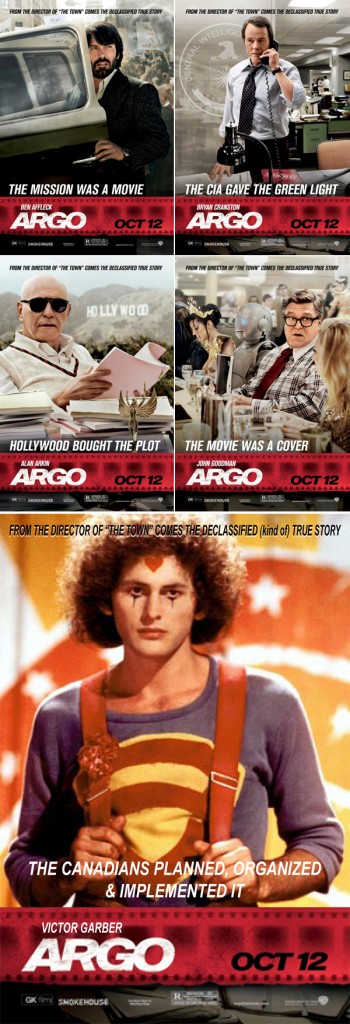
Future Affleck Projects
Now that Ben Affleck star of Laurence of Arabia (oh, that’s right he wasn’t even born yet when that film was made. I guess it doesn’t matter) decided to be a director, Canadian Culture Thing has put together a few ideas for some future projects…
Jaws: In the Affleck remake of the 1975 classic film, characters Quint, Hooper and Brody decide that Jaws is too scary to fight and so decide to stay on land. The day is saved when actor/director Ben Affleck playing new character Agent Chip Bigweiner flies in on his attack helicopter and diving into the water punches Jaws to death. In the final scene he shows off his pizza-slice sized shark tooth necklace and winks at the camera. Pure gold.
World War II: It’s 1939 and Germany has just entered Poland. The United States springs into action telling the allied nations to “take the day off. We got this one!” Germany is defeated in 1939by the American war-machine led by Buck Bigweiner (Chip’s grandfather)! Later in 1939, the Americans receive intelligence reports from code name Pinocchio, preemptively attacking Japan. Having anticipated that Japan had WEAPONS OF MASS AFFLECKTION and were about to launch an attack on the U.S. they move in to “sort ‘em out”. A struggle ensues aboard the Japanese Bomber the Enola Red Sun between Buck Bigweiner and twelve Samurai Warriors. In a reckless (and vague) happenstance, the Japanese drop an Atomic Bomb on their own people…twice! Wah-Hoo, git ‘er done!
Baseball Hot Shots: A patriotic baseball team of misfits and ne’er-do-wells led by Dirk Bigweiner, replaces the Atlanta Braves and defeats the Toronto Blue Jays in the 1992 World Series. This will be a great set-up for Baseball Hot Shots II where, replacing the Philidelphia Phillies, retired Dirk Bigweiner is convinced to come out of retirement to lead his ramshackle team of has-bins, hoodlums and a woman pitcher, on to defeat the Toronto Blue Jays again in World Series 1993!
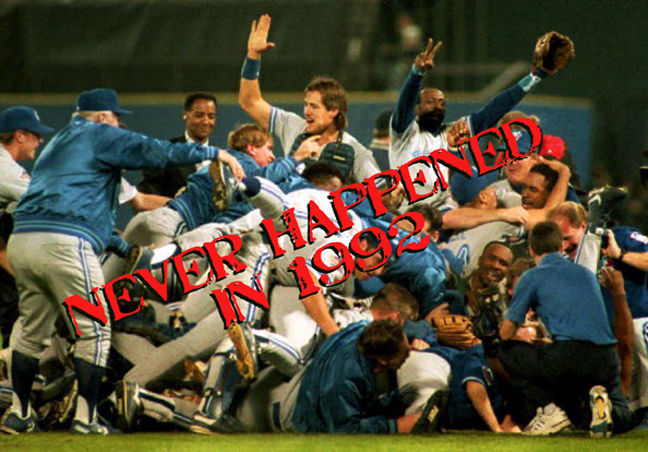
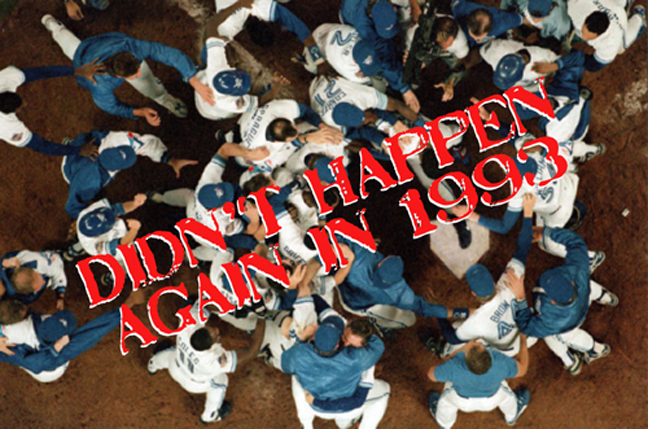
Argo Lord of Light: If he has a time machine as he might actual have (or at least he’ll just say that he does), he could go back in time and re-film Argo as the science-fiction film used in the cover-story. The (other) fictional film Argo is based of the novel Lord of Light by author Roger Zelazny with a screenplay by Barry Geller and concept art by comic-book giant Jack “King” Kirby. If Mr. Affleck, inventor of electricity, decides to pass on this adaptation he could always, in a Lucasian move, simply insert additional CGI into his existing Argo. Tony Mendez becomes the Buddha-esque Sam Bigweiner, struggling against the established gods in Iran with the assistance of the mythical Canadians.
I’m in for 5% Trustworthy Ben. Remember, I loved Dogma.
Argo won for Best Picture at the 85th Academy Awards in 2013. Argo beat out such docu-drams as Life of Pi and Les Misérables and children’s favourites like Lincoln and Django Unchained. While I’m not saying that Argo is a bad film, it’s just a little disappointing. I totally plan on seeing it when it plays on TV
